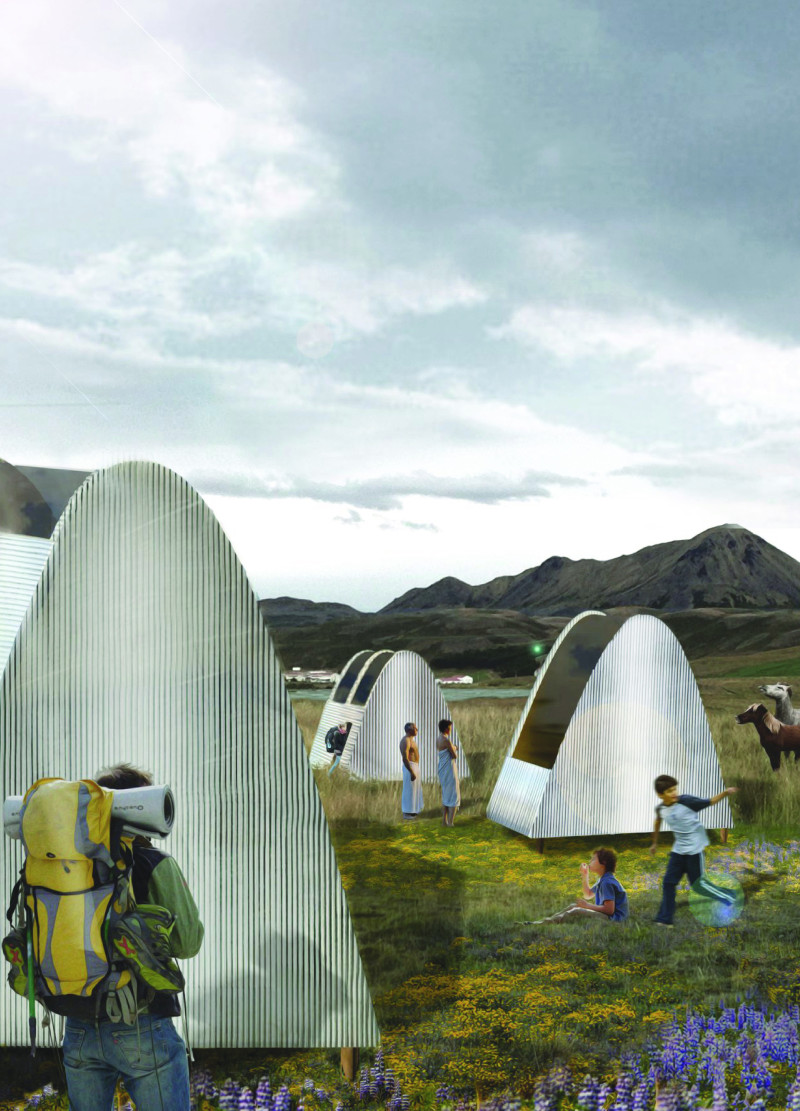5 key facts about this project
A significant aspect of Ljósid is its commitment to sustainability through the use of eco-friendly materials and energy-efficient solutions. The project employs corrugated metal sheets for durability, wood for aesthetics and insulation, and solar panels to support energy needs. Hydrophobic sheets are also included to mitigate moisture issues, ensuring longevity and comfort for occupants. The architectural design prioritizes functional layouts with shared amenities, creating a sense of community among guests while catering to diverse group sizes.
Unique Design Elements and Community Integration
Ljósid stands out due to its modular approach, allowing for various configurations to suit different group dynamics. The design incorporates parabolic windows that enhance views of the night sky, optimizing experiences for guests wishing to observe the Northern Lights. This focus on skyward visibility not only enhances the aesthetic appeal but also enriches the overall experience of staying in a remote landscape. The intimate interior spaces feature a minimalist approach, incorporating natural wooden elements and functional furnishings, which promote comfort without excessive clutter.
Sustainable Practices and Material Use
The architecture of Ljósid reflects a strong commitment to sustainability. The use of renewable resources is a core principle, as seen in the incorporation of solar panels that reduce reliance on non-renewable energy sources. The layout encourages outdoor activities, with designated storage areas for outdoor gear that cater to the adventurous spirit of guests. Furthermore, the design fosters engagement with the surrounding environment, capitalizing on the region's geothermal activity and rich biodiversity. This alignment with nature ensures that Ljósid is not just a place to stay but also a locale for experiential learning and connection with the Icelandic landscape.
To gain deeper insights into the intricacies of this architectural project, readers are encouraged to explore the architectural plans, sections, and designs presented in detail. The thoughtful integration of form, function, and sustainable practices in Ljósid makes it worth further examination for those interested in contemporary architecture and eco-tourism.


























